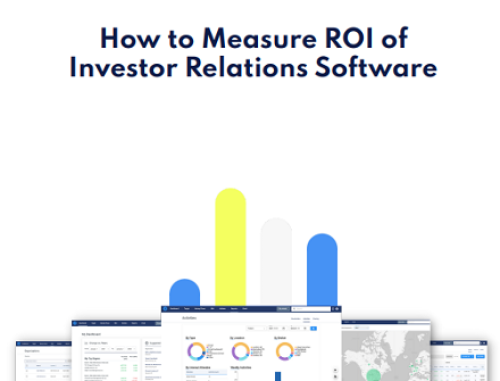University of Illinois study finds that tweets from the C-suite can produce more trusting relationships with investors
Investors are more willing to invest and exhibit higher levels of trust when a firm’s CEO communicates negative financial news via Twitter than when it is disclosed through other traditional channels, a study has found.
Further researcher from the University of Illinois College of Business also shows that direct tweets from the CEO can help build a more enduring form of trust, which means that investors tend to discount the negative news as a one-time event.
The study looked at the responses of 194 senior business students to negative news, disclosed via website and Twitter from IR and the CEO separately, from a fictional company, before grading how attractive a proposition the stock was and how likely they were to invest in it.
Brooke Elliott, professor at the University of Illinois College of Business, said that the research was borne out of speaking to many social media managers at listed companies.
‘They expressed concerns about CEOs tweeting out off-the-cuff information, because they don’t have control, or it hasn’t been run by legal,’ she says. ‘Because of that, they’d been very resistant to let the CEO disclose anything through his or her personal account.’
Another finding of the report, entitled Investor reaction to $firm or #CEO use of social media for negative disclosures, is that there is evidence that investors reading repeated negative information from a firm’s IR twitter handle are less willing to invest than those receiving the same disclosure from a company’s website.
One good takeaway for IROs, suggests Elliott, is to have your CEO establish a Twitter account and simply tweet already scripted information from a press release. ‘In our experimental setting, we had CEOs tweet out information that had already been made public: they’re simply tweeting a link to the press release along with a line from the document,’ she explains. ‘It’s nothing new, the CEO isn’t adding their own take, there’s nothing off-the-cuff, so it’s very low risk.’
‘When information is disclosed this way – rather than via a website or an IR-dedicated twitter account – investors are more likely to trust the CEO and, because of that kind of trust, the reaction to negative news is less severe.’
The benefits of such a move could suit any company, Elliott continues, whether small or large, public or private or whether your primary audience is investors or other individuals.
‘It’s about developing a perceived relationship with the person tweeting, your CEO,’ she notes. ‘When management responds directly on social media, the kind of trust that develops is like they’ve had a face-to-face interaction with the inquirer. The medium is very different from any others previously used by firms to communicate because they don’t allow for the same level of personal interaction, and for that trust to develop.’
There are further aspects of the relationship between capital markets and social media to explore, Elliott says, and work is already underway to examine another crucial area of study.
‘With one of my co-authors - Steph Grant - we’re working on another study here at the University of Illinois,’ she reveals. ‘We’re examining whether allowing investors to directly interact with a manager when they’re trying to determine the value of a firm has any effect on market price efficiency.’










